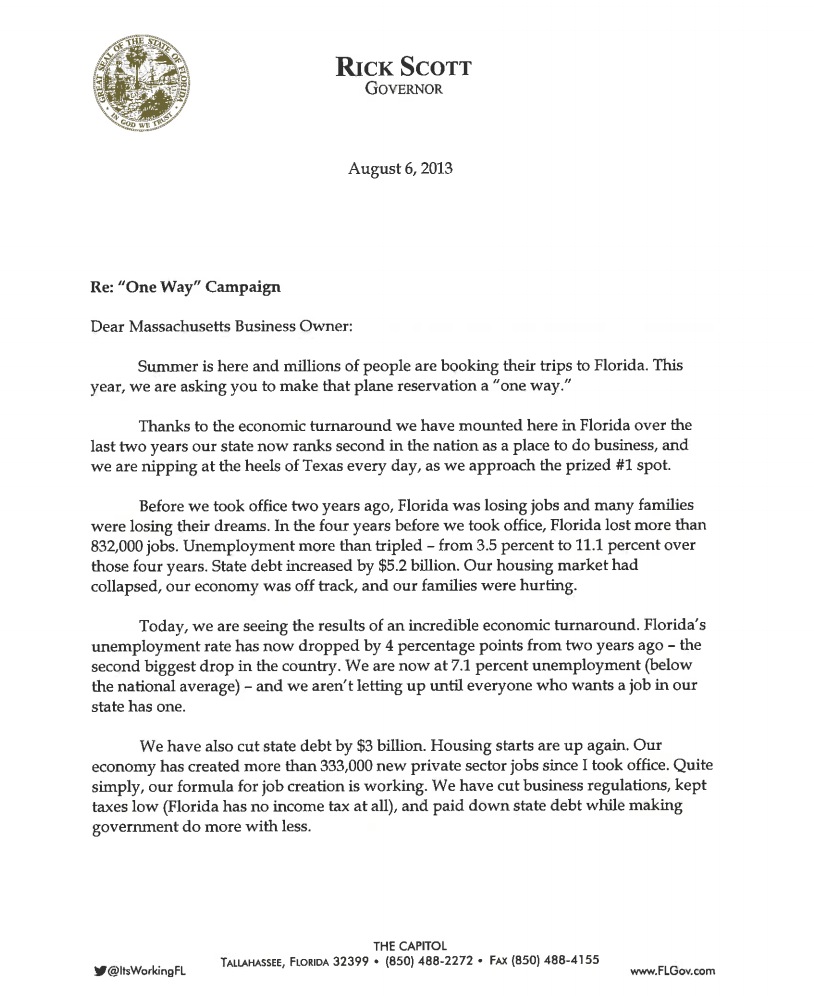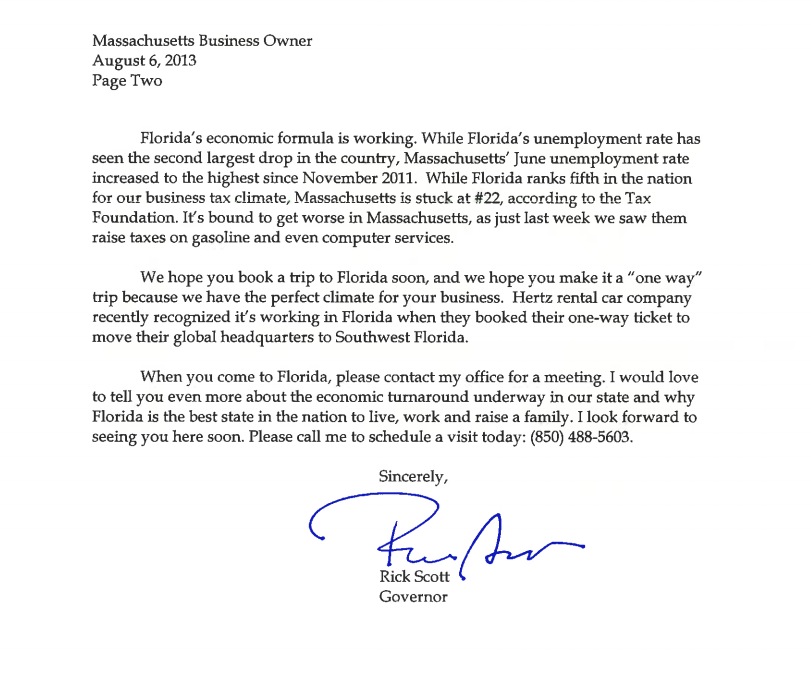Florida—Yes, That Florida—Is Trying to Poach Massachusetts Businesses
Nothing says “I love you” like roses, diamonds, or even candy. Florida, arguably the most bat-shit crazy state in the union, is trying something different: boilerplate.
In the wake of Massachusetts lawmakers voting to impose a 6.25 percent tax on computer design and software sales, Florida’s economic development lotharios dashed off this letter to Bay State business titans on August 6, asking their companies to make a “one-way” trip to Florida:


Florida likes to swing, apparently, but may be unaware that things posted to the Internet can be viewed by everyone. A review of the state’s website shows the Massachusetts letter was dispatched shortly after the tax was passed. Rather than write a new letter, state officials dusted off almost word-for-word identical appeals that were sent to Colorado businesses leaders on July 17, to Minnesota on May 30, to California on April 26, and to Illinois on April 22.
We’re no stranger to strange news coming out of Florida. But what is going on? “It shows Florida’s taxes may be lower, but they’re not exactly sharpies when it comes to modern communications techniques,” said Tobe Berkovitz, a Boston University professor in the College of Communication.
The recruitment effort may be ham-handed, but Bay State lawmakers better watch their bacon, Berkovitz said. Massachusetts business leaders are so angry over the Legislature’s tax hike, they’re trying to repeal it. Florida, like many states, is trying to grow its economy. The jobless rate is 7.1 percent (in Massachusetts, it’s 7 percent).
Florida’s play is that the state is tax-free and has a low regulatory burden. Massachusetts’ advantages are that people like living here—that despite high business costs, businesses can recruit top talent to a place with great universities, museums, and health care. But Florida is giving employers something to think about.
“What Massachusetts should be worried about is that the costs of doing business for these companies could be less, and that’s a big deal,” Berkovitz said. He added that leaders considering Florida will ask “how much is it going to cost us and can we get the kind of workers we want to relocate there?”
Of course, Berkovitz stipulated that Florida’s low-tech campaign could be blunted by silly mistakes: “As long as you don’t begin it with ‘dear occupant,’ you’re not in totally bad shape.”
If that’s the case, Massachusetts may catch a break. In the meantime, it seems Florida posted a draft letter to Kentucky business leaders, and hasn’t entirely mastered the poaching other-state’s-companies schtick yet. But be afraid.


